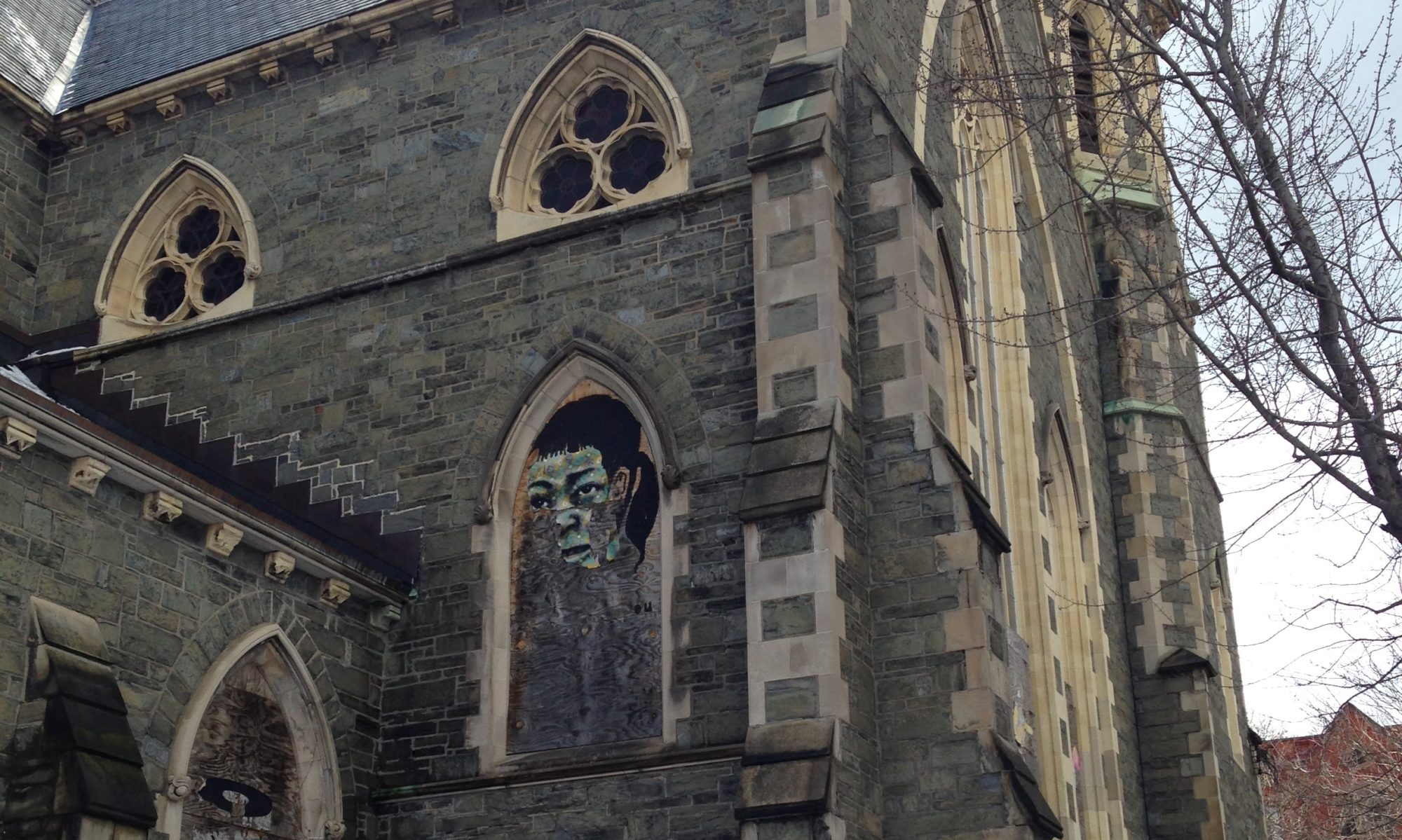Date: 4/7/13
Church name/type: Third Reformed Church, Albany, RCA
Pastor: The sermon was given by a Preaching Elder named Pete Pagerey. He was visiting from First Church in Albany. Not sure who the usual pastor is.
Style of worship: Formal worship structure, mildly casual
Overall Impression: Um, old vibe? Otherwise not much impression at all.
Thoughts: I didn’t get much of a strong vibe from this church. I mean it wasn’t that great, wasn’t that bad. The parking lot is at the back of the church and a fence stops you from walking around to the front door. The back door leads to a hall and rooms attached to the church, but it wasn’t too hard finding the worship space from there. The parishioners seem to have chit-chat time both before and after service in an adjoining room. I didn’t feel like trying the before-service variety, so I just collected my thoughts and waited for things to start. I like the program pamphlet at this place. It gave hymn numbers for each song and even the short responses. If I were a regular member I’m sure I’d have the responses by heart. The fact that they were included makes me feel more welcome as a guest.
The regular pastor was off, so we listened to an Elder (a pastor, I think) borrowed from another church. He did an interesting children’s time about bird calls. We need to learn about different bird’s calls, but god knows our voices without having to look them up in some way. Moving on, the sermon was about Thomas the apostle and his famous reaction to Jesus’ return while Thomas was absent. Thomas so often gets a bad rap. But maybe he shouldn’t. We heard that Thomas was lacking in faith and this was because of ’emotional’ hesitance. Thomas was upset because he couldn’t believe that Jesus would a) leave and then b) come back. So Jesus was nice enough to reappear just for him.
Honestly the message about Thomas lost me somewhere. I think the point was supposed to be -let’s not pick on poor Thomas. I dig that, but the reason was unclear. Are we supposed to see Jesus as someone who indulges us when we don’t believe ’emotionally’? If so, why doesn’t he appear to all of us? What gives Thomas the right to the preferential treatment? Or is Jesus only corporeal for limited time, like he’s running out of…I don’t know, ectoplasm or something? The message confused me enough that I started daydreaming again about the stained glass windows. They are so green and so plain. Why? Don’t stained glass windows usually have pictures? Are we supposed to imagine our own? I don’t mind!
The last thing I will add is the demographic in this church tended older. Those I chatted with after service were probably more than a decade my senior. They assured me their church was diverse, but mostly they looked old and European. The young family was also the black family, so that’s not alot. On the other hand the church was not well filled. One family constitutes a significant chunk if the number is low enough. I guess it’s a bit disappointing either way.
Their website: Needs fixing! There is a link for ‘worship’ that leads to an error message. If I want service times and don’t see them on the main page, I would click the word worship. Having to dig around on a partly broken website for when to show up is not a good first impression.
